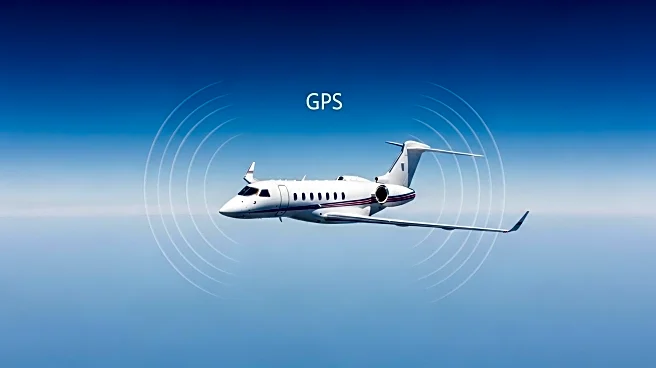What's Happening?
A plane carrying European Commission President Ursula von der Leyen was reportedly targeted by GPS jamming while attempting to land in Bulgaria. The incident occurred during von der Leyen's tour of Eastern European member states to rally support for Ukraine. Bulgarian authorities suspect Russian involvement in the interference, although the Kremlin has denied these allegations, labeling them as 'fake' and 'paranoia.' Despite the GPS disruption, the plane landed safely using paper maps. This event underscores the ongoing tensions between Russia and the European Union, particularly in the context of the EU's support for Ukraine against Russian aggression.
Why It's Important?
The alleged GPS jamming incident highlights the persistent geopolitical tensions between Russia and the European Union, especially concerning Ukraine. The EU, under von der Leyen's leadership, has been a strong advocate for Ukraine, urging member states to increase support amidst Russia's military actions. This incident could further strain EU-Russia relations and may prompt the EU to enhance its defense measures and support for Ukraine. The situation also raises concerns about the security of air travel in regions close to Russian influence, potentially impacting international diplomatic travel and cooperation.
What's Next?
In response to the incident, the European Union may consider additional sanctions against Russia or entities linked to such interference. The EU might also increase its defense capabilities and support for Ukraine, as indicated by the European Commission spokesperson. Further investigations by Bulgarian authorities and the EU could provide more clarity on the incident. The situation may lead to heightened security measures for diplomatic flights in the region and increased scrutiny of Russian activities near EU borders.
Beyond the Headlines
The use of GPS jamming as a tool in hybrid warfare reflects the evolving nature of geopolitical conflicts, where non-traditional methods are employed to exert influence and disrupt adversaries. This incident may prompt discussions on international regulations and protections against such technological interferences, emphasizing the need for robust cybersecurity measures in aviation and other critical sectors.









